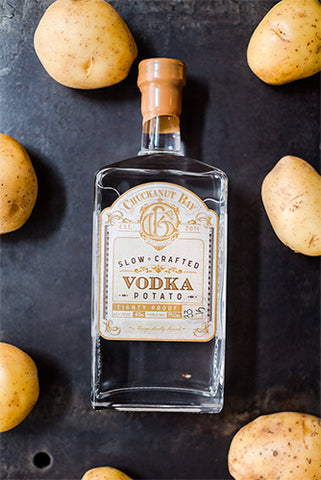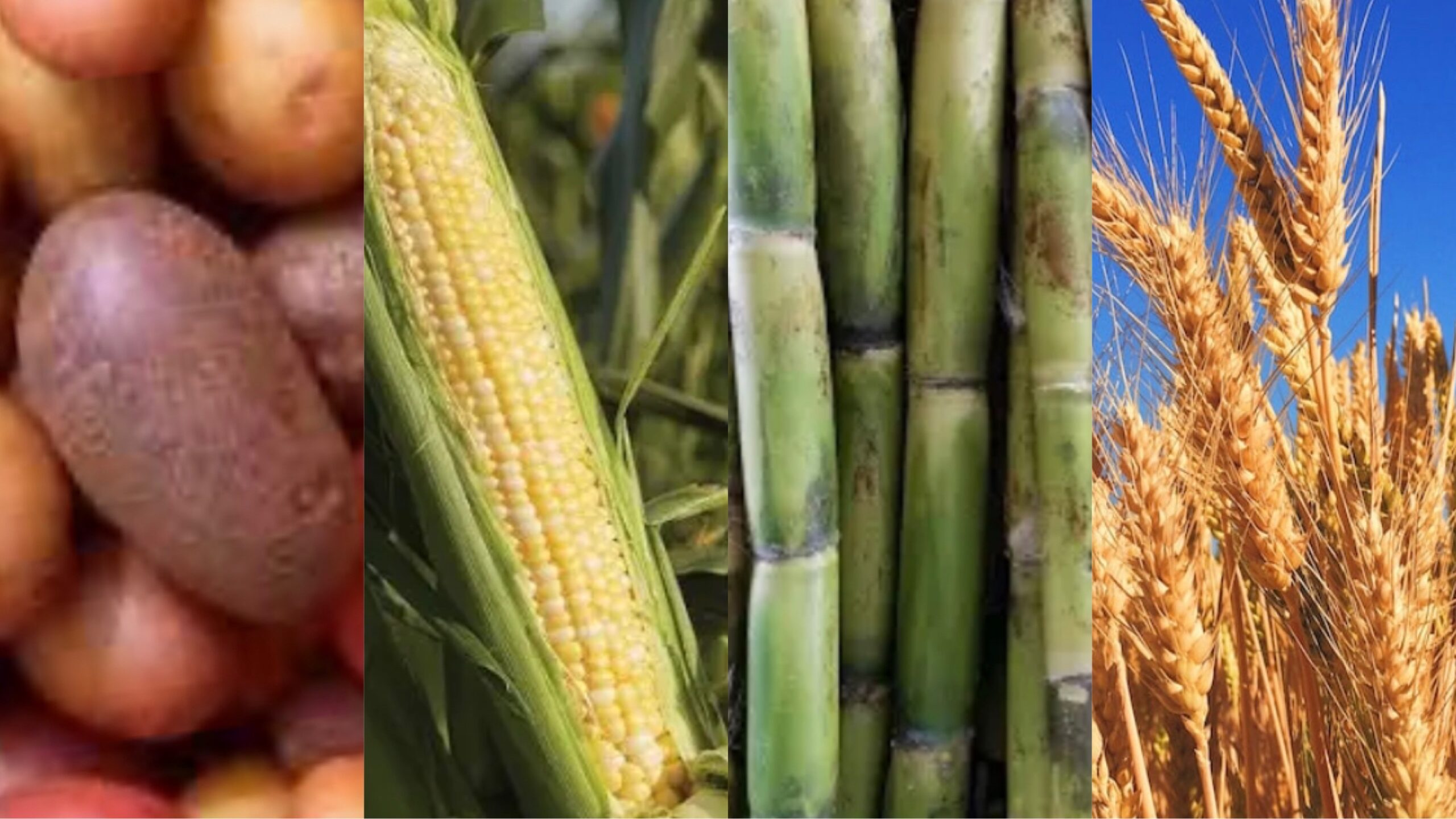Origins Of Vodka: From Potatoes To Grains

Vodka has a rich history that dates back centuries. While potatoes were initially used in the production of vodka, the use of grains became more dominant over time. The origins of vodka can be traced to Eastern Europe, particularly Russia and Poland, during the 8th or 9th century. By the 14th century, vodka had gained popularity and its name. Today, most vodka is made from grains such as corn, rice, and wheat. However, the production of vodka from potatoes still remains an option, showcasing the versatility and flexibility of this beloved spirit.
Origins Of Vodka: Historical Background
The origins of vodka can be traced back to Eastern Europe, particularly Russia and Poland, during the 8th or 9th century. Although potatoes were not introduced to Europe until later, the first mention of the word “vodka” appeared in the 14th century. Distillation, the process used to create vodka, had been practiced for centuries before that. The popularity of vodka grew steadily, cementing its place as a beloved spirit. Today, vodka continues to be enjoyed worldwide and its historical roots remind us of its enduring appeal.
Origins Of Vodka: Raw Materials Used In Production
Raw materials play a crucial role in vodka production. While potatoes are commonly associated with vodka, they are not the sole raw material used. Vodka can also be made from grains such as wheat, rye, barley, and corn. Each raw material brings its own distinct flavor profile to the final product. Wheat is known for its smoothness and subtle sweetness, while rye adds a spicier note. Barley provides a more delicate and nuanced taste, while corn imparts a slightly sweeter flavor. These different raw materials give vodka its diversity and allow for unique expressions of the spirit.
Vodka Production Process: Distillation And Filtration

The production process of vodka involves two key steps: distillation and filtration. Distillation is the process of heating the fermented liquid to separate the alcohol from impurities. The liquid is vaporized and then condensed to collect the alcohol, resulting in a high-proof spirit. Filtration is then used to remove any remaining impurities and create a smooth and clean-tasting vodka. Filtration methods vary, with some distillers using charcoal filters or multiple filtration passes to achieve the desired level of purity. These processes ensure that vodka is a pure, neutral spirit ready for consumption.
Vodka Distillation: Methodologies And Significance
Vodka distillation is a crucial step in the production process, where the fermented liquid is heated and vaporized to separate the alcohol from impurities. There are various methodologies used in vodka distillation, including column distillation and pot distillation. Column distillation involves multiple distillation stages, continuously removing impurities for a high-proof spirit. Pot distillation, on the other hand, is a traditional method that produces a more flavorful and aromatic vodka. The significance of distillation lies in its ability to create a pure and clean-tasting vodka, ensuring that the final product meets the desired quality and standards.
Vodka Filtration: Techniques And Impact On Taste
Vodka filtration is a crucial step in the production process that helps refine the spirit and enhance its taste. Various filtration techniques are employed, including charcoal filtration, sand filtration, and membrane filtration. These techniques effectively remove impurities and unwanted flavors, resulting in a smoother and cleaner-tasting vodka. Charcoal filtration, in particular, is widely utilized as it can absorb impurities and impart a subtle flavor. The filtration process plays a significant role in the overall quality of the vodka, ensuring a more enjoyable drinking experience for consumers.
Potato Vodka Myth: Debunking The Misconception

The misconception that vodka is primarily made from potatoes is a common one. While it is true that historically some vodka was made from potatoes, this is not the case for most vodka produced today. Vodka can be made from various ingredients, including grains like wheat, rye, and barley. The reality is that the choice of raw material in vodka production depends on the distiller’s preference and regional traditions. So, if you have ever wondered “Is vodka made from potatoes?” the answer is no, not necessarily.
Potato Vodka Explained: Fact Vs. Fiction
Potato vodka has its own distinctiveness, but there is a common misconception surrounding its production. While it is true that vodka can be made from potatoes, it is not the primary ingredient used in most vodka production today. The choice of raw material depends on the distiller’s preference and regional traditions. Potato vodka tends to have a slightly sweeter and creamier flavor compared to grain-based vodka. However, the quality and taste of vodka ultimately come down to the distillation and filtration processes, as well as the skill of the distiller. So, while potato vodka does exist, it is not the only option available.
Potato Vodka Distinctiveness In Taste And Quality
Potato vodka offers a distinct flavor profile that sets it apart from grain-based vodkas. Its creamy and slightly sweet taste adds a unique dimension to cocktails and mixed drinks. The use of potatoes as a raw material in production brings a richer and fuller mouthfeel. This distinctiveness in taste and texture is appreciated by vodka enthusiasts who enjoy the smooth and velvety experience that potato vodka provides. Its quality is further enhanced by the skills of the distiller, ensuring a refined and well-balanced spirit.
Grain Vodka: Dominant Source Of Production

Grain vodka has become the dominant source of production in the modern vodka industry. Grains such as wheat, rye, and corn are widely used to create this popular spirit. The use of grains offers distillers greater versatility and control over the flavor profile of the vodka. Wheat, for example, adds a smooth and soft character, while rye brings a bit of spice. Corn, on the other hand, creates a sweeter and milder taste. With its wide availability and distinct characteristics, grain vodka has gained popularity among both distillers and consumers alike.
Grain Vodka: Common Grains Used In Production
Grain vodka, which has become the dominant source of production in the modern vodka industry, is typically made from common grains such as wheat, rye, and corn. These grains provide distillers with a wide range of flavors and characteristics to work with. Wheat adds a smooth and soft character to the vodka, while rye brings a slightly spicy note. Corn, on the other hand, creates a sweeter and milder taste. These grains are widely available and have distinct profiles, making them popular choices for creating grain vodka.
Grain Vodka Characteristics And Popularity
Grain vodka, which is primarily made from common grains such as wheat, rye, and corn, possesses distinct characteristics that have contributed to its popularity in the vodka industry. Wheat-based grain vodka offers a smooth and soft mouthfeel, while rye imparts a slightly spicy note. Corn-based grain vodka, on the other hand, provides a sweeter and milder taste. These diverse flavors and profiles allow producers to create a wide range of vodka varieties to cater to different preferences. As a result, grain vodka has gained significant popularity among consumers seeking a variety of flavor options in their vodka choices.
Premium Vs. Non-premium Vodka: Quality And Ingredients

In the world of vodka, there is a clear distinction between premium and non-premium varieties. Premium vodka is known for its superior quality and craftsmanship. It is often made from the finest ingredients, such as high-quality grains or potatoes, and undergoes meticulous production processes. Non-premium vodka, on the other hand, may be made from lower quality ingredients and can be mass-produced. These differences in ingredients and production methods result in variations in taste and overall quality. When looking for a truly exceptional vodka experience, opting for a premium brand is recommended.
Premium Vodka: Distinctions And Key Features
Premium vodka stands out from non-premium varieties due to its exceptional quality and unique characteristics. One key feature of premium vodka is the use of high-quality ingredients, such as premium grains or potatoes. These ingredients undergo meticulous production processes, ensuring a smooth and refined taste. Premium vodka is often distilled multiple times, resulting in a purer and more refined spirit. Additionally, premium vodka brands often prioritize craftsmanship, utilizing traditional production techniques and paying attention to every detail. These distinctions contribute to the superior taste, purity, and overall luxurious experience of premium vodka.
Non-premium Vodka: Ingredients And Production Methods
Non-premium vodka is typically made with less attention to detail and craftsmanship compared to its premium counterparts. It often uses lower-quality ingredients, such as lower-grade grains or even molasses. The production methods for non-premium vodka may involve less refinement, including fewer distillations and less rigorous filtration. This can result in a harsher and less smooth taste compared to premium vodka. Non-premium vodka brands may prioritize cost-effectiveness and mass production, sacrificing some of the finer qualities that define premium vodka. Ultimately, the ingredients and production methods used in non-premium vodka can have a significant impact on its overall quality and taste.
Conclusion

In conclusion, the belief that vodka is primarily made from potatoes is a misconception. While vodka can be made from potatoes, the majority of modern vodka production utilizes grains such as wheat or rye. The distillation process, filtration, and the expertise of the distiller play a crucial role in determining the quality and taste of vodka. Understanding the historical background of vodka production helps dispel the myth surrounding potatoes as the sole ingredient. It is important to recognize that vodka can be made from a variety of ingredients, making it a versatile and diverse spirit.
Clarity On Vodka Production: Key Takeaways
In conclusion, it is important to understand that while vodka can be made from potatoes, the majority of vodka production today utilizes grains such as wheat or rye. The distillation and filtration processes play a crucial role in determining the quality and taste of vodka. The belief that vodka is solely made from potatoes is a misconception. Vodka production is diverse and versatile, with different ingredients and methods used to create unique flavors. By debunking the myth surrounding potatoes as the main ingredient, we gain a clearer understanding of the diverse world of vodka production.
FAQ About Is Vodka Made From Potatoes? Understanding Vodka Production
Q: Is vodka always made from potatoes?
A: No, while historically vodka was primarily made from potatoes, modern vodka production also uses grains like wheat, rye, and corn, among others.
Q: What determines the base ingredient for vodka production?
A: The base ingredient used in vodka production is often chosen based on regional traditions, availability of raw materials, and desired flavors.
Q: Are all vodkas gluten-free?
A: Vodkas made from ingredients like potatoes, grapes, or corn are naturally gluten-free. However, vodkas made from grains containing gluten may retain traces of gluten unless they undergo specific distillation processes.
Q: How is vodka made from potatoes different from other types of vodka?
A: Vodka made from potatoes may have a slightly different flavor profile compared to those made from grains, often described as creamier or earthier.
Q: Can you taste the difference between vodka made from potatoes and other ingredients?
A: While some connoisseurs claim to detect subtle variations in flavor between potato-based vodka and grain-based vodka, for most people, the taste difference may not be very noticeable.
